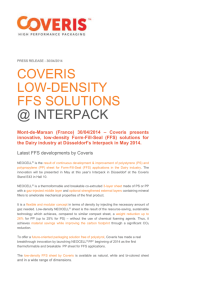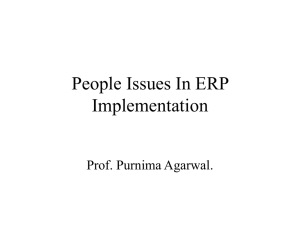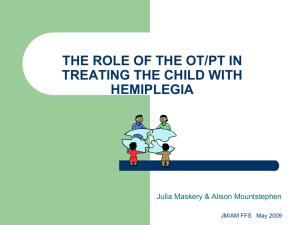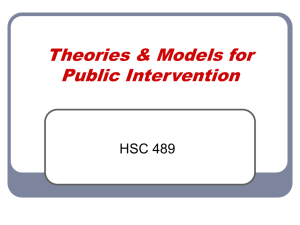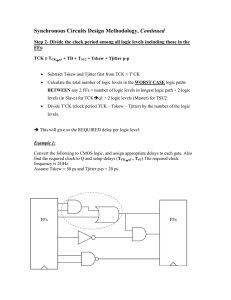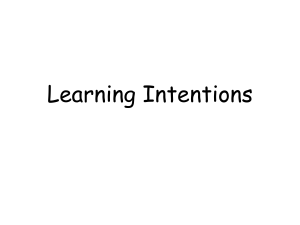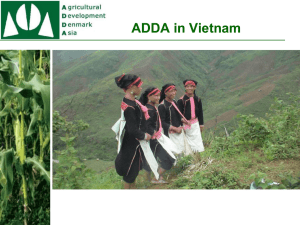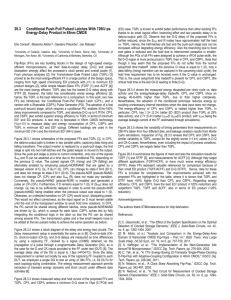(non-)adoption of CA: contributions from Social Psychology
advertisement
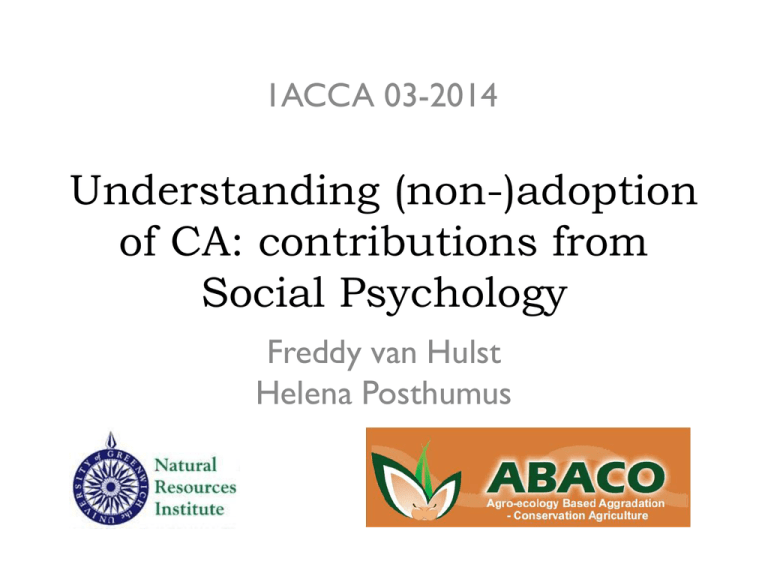
1ACCA 03-2014 Understanding (non-)adoption of CA: contributions from Social Psychology Freddy van Hulst Helena Posthumus Contents • The role of adoption studies Agricultural Capabilities • Methodology Reasoned action approach • Results and discussion CA in Kenya The role of adoption studies Tittonel et al. 2012 Agricultural capabilities Understand farmers’ decisions Agricultural capabilities Realized farming system Window of opportunities CA or something else Adopter perception Innovation diffusion Economic constraints Methodology Social psychology Outcome Willing beliefs Reasoned action approach •Ploughing •Direct Planting •Spraying Herbicides •Shallow Weeding Attitude towards action Social beliefs Stimulated Social norms Control beliefs Capable Perceived control Intention Actual control Action Methodology ...on your land, in the long rain season 2014: (future) Intention Very unlikely Possible Very likely Attitude Very foolish Neutral Very wise Important others think I should not plough They have no opinion Important others plough Very few Control: ploughing is Very difficult Moderately Average I should plough Very many Very easy Methodology Crops Maize /beans Potatoes Sample 4 FFS (n=32) FFS members Non-FFS members Non-FFS (n=62) Results and discussion Direct Planting -2 -1 Intention Attitude Injunctive Norm Descriptive Norm Perceived Control FFS members Non-FFS members *** = p<0.001, * = p<0.05; ns = not significant. 0 1 2 *** *** * ns *** Results and discussion Ploughing -2 -1 Intention 1 Ploughing -2 Attitude Intention Attitude Injunctive Norm Descriptive Norm 0 Injunctive Norm Descriptive Norm Perceived Control Perceived Control FFS members Non-FFS members *** = p<0.001, ** = p<0.01 -1 0 1 2 2 *** *** *** ** *** Results and discussion • Weed control: Attitude Perceived control Spraying Herbicides FFS ++ ++ Non-FFS +/- + Shallow weeding FFS ++ ++ Non-FFS +/- - • Social norms: – Neutral social independence – FFS members experience some group pressure Conclusions • Adoption of CA Willingness, capability and social acceptance explain intention of performing specific CA actions. • Training and learning is key It influences both perceived control and attitudes. • Respect farmers’ social independence • Link with actual adoption? Thank you! Understanding (non-)adoption of CA: contributions from Social Psychology Freddy van Hulst Helena Posthumus FFS members Non-FFS members *** = p<0.001, ** = p<0.01, * = p<0.05; ns = not significant. Literature • Social Psychology, the Reasoned Action Approach Fishbein, Martin, and Icek Ajzen. 2010. Predicting and Changing Behavior; the Reasoned Action Approach. New York: Taylor & Francis Group. • Targeting technology, and innovation systems: Tittonell, Pablo, E. Scopel, N. Andrieu, H. Posthumus, P. Mapfumo, M. Corbeels, G.E. van Halsema, et al. 2012. “Agroecology-based Aggradation-conservation Agriculture (ABACO): Targeting Innovations to Combat Soil Degradation and Food Insecurity in Semi-arid Africa.” Field Crops Research 132 (June): 168–174. doi:10.1016/j.fcr.2011.12.011.
